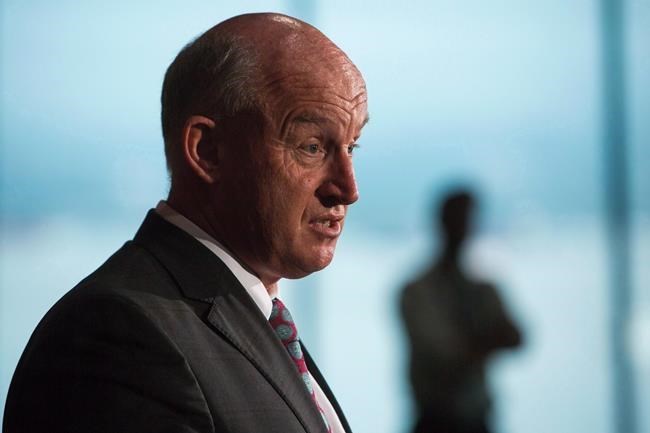British Columbians will have to be at least 19 years of age to buy and use marijuana once the federal government legalizes recreational pot in the summer.
B.C. Solicitor General Mike Farnworth announced the minimum age limit Tuesday in releasing a series of policy decisions on the regulation of non-medicinal marijuana.
He said the B.C. Liquor Distribution Branch will be the wholesale distributor of marijuana in the province.
The retail system has yet to be announced, but will include a mixture of public and private outlets, Farnworth said. Details are expected in early 2018. “We are still looking at a series of options as to how that will take place,” he said.
The province expects to introduce or amend up to 18 pieces of legislation in the spring to deal with the federal government’s plans to legalize and restrict access to marijuana beginning in July.
The House of Commons passed its legalization bill last month and sent it to the Senate for further study.
Under the proposed law, the federal government would be responsible for regulating production and setting health and safety standards. The provinces would oversee distribution and sales.
The B.C. government said requiring people to be at least 19 to buy marijuana is consistent with provincial rules on alcohol and tobacco.
The Doctors of B.C. and the Canadian Medical Association wanted governments to set the minimum age at 21.
“Our concern has been that we know that people’s brains can continue to develop until they’re about 25,” said Dr. Trina Larsen Soles, president of Doctors of B.C.
Farnworth said the government tried to strike a balance between protecting young people and eliminating the black market for marijuana.
“We know that the largest consumers of cannabis are young people in that 19-to-30-year-old age group,” he said. “As a result, if you set [the limit] too high — for example at 25 — you’re not going to get rid of the black market, because they’re going to go and get it elsewhere.
“So what we’ve done is what all the other provinces have done and tie the age of consumption to the age of consuming alcohol.”
He said there will be “zero tolerance” policy for those under the age of 19 caught in possession of marijuana.
Alex Robb, general manager of Trees Dispensary, which operates five cannabis storefronts in Victoria and one in Nanaimo, took it as a positive sign that the province is considering a mixture of public and private retail outlets. “I see this as a big win for licensed dispensaries — not necessarily the entire dispensary community, but those that have been approved by municipalities already.”
Robb said two of Trees Dispensary’s Victoria storefronts are licensed and the other three are in process.
He expects the government will provide retail opportunities to businesses “who have demonstrated they can play by the rules, that they can follow regulations that are set for them and that have been granted licences already.”
Victoria Mayor Lisa Helps said the city took a risk by developing its own zoning and business licence regulations without direction from the province. “It’s one of those cases where the risk-taking has brought with it, I think, substantial rewards,” she said.
“While many municipalities across the province are going to need to create zoning regulations and business licence regulations for cannabis dispensaries, we will simply need to tweak our existing regulations based on direction from the province.”
The Union of B.C. Municipalities endorsed the policy decisions announced Tuesday, but will await details on how and where marijuana will be sold.
Vancouver Coun. Kerry Jang, who co-chairs the joint provincial-local government committee on cannabis regulation, said municipalities oppose the sale of pot in liquor stores.
“That is not a good public health move at this time and, hopefully, they won’t do that,” he said. “I know it’s tempting. It sounds easy.” But he said there is a concern that selling alcohol and marijuana at the same location will lead to co-use. “They’ll be drunk and high and you don’t want that.”
Stephanie Smith, president of the B.C. Government and Service Employees’ Union, disputed that claim. Her union, which represents government liquor store workers, has teamed with private operators to push for the sale of marijuana through more than 850 public and private liquor stores across B.C.
“We were unable to actually find any evidence or reports that actually proved that co-location can lead to problems,” she said. “So we felt that this could be dealt with in the store at the point of sale. Our members are trained in Serve It Right and responsible sales.”



